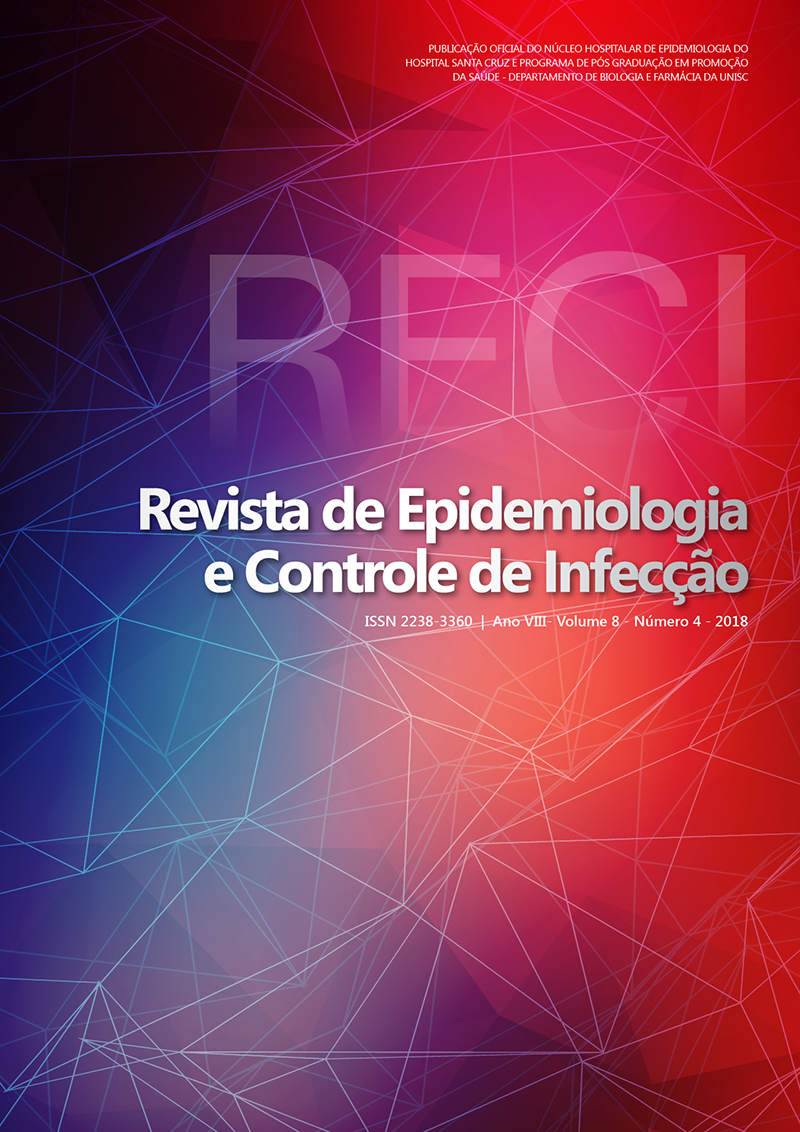American cutaneous leishmaniasis profile in a Brazilian Southwestern Amazonia: a multivariate approach
DOI:
https://doi.org/10.17058/reci.v8i4.11494Abstract
Background and Objectives: The American Cutaneous Leishmaniasis (ACL) is a disease of complex chain of transmission subject to various determinants, in the same region. Theaim was to analyze the ACL behavior and identify the epidemiological profile in a Brazilian Southwestern Amazonia region, using multivariate analysis techniques. Methods: The hierarchic cluster and principal components analysis were performed using the Brazilian System for Disease Notification (Sinan), from 2001 until 2010, recorded in the state of Acre.Results: 10,984 cases were analysed and discriminated three groups of ACL. In the first group, the epidemiological profile presented a higher percentage, in relation to the other two groups, of women with predominance of ACL mucosa form, aging less than 20 years, living and working in rural and forest environment; In the second group, the epidemiological profile consisted of male patients, with ACL in the cutaneous form, age of 40 years or older, living and working in urban areas. In the third group, there was predominance of male patients, ACL cutaneous form, ages between 20 and 40 years, living and working in rural areas. Conclusions: There are evidences that for each type of transmission, namely forest, urban and rural, there is a corresponding epidemiological profile and techniques of multivariate analyzes were effective to evidence the ACL behaviour relating them to the profile of the affected individuals.Downloads
Downloads
Published
How to Cite
Issue
Section
License
The author must state that the paper is original (has not been published previously), not infringing any copyright or other ownership right involving third parties. Once the paper is submitted, the Journal reserves the right to make normative changes, such as spelling and grammar, in order to maintain the language standard, but respecting the author’s style. The published papers become ownership of RECI, considering that all the opinions expressed by the authors are their responsibility. Because we are an open access journal, we allow free use of articles in educational and scientific applications provided the source is cited under the Creative Commons CC-BY license.


